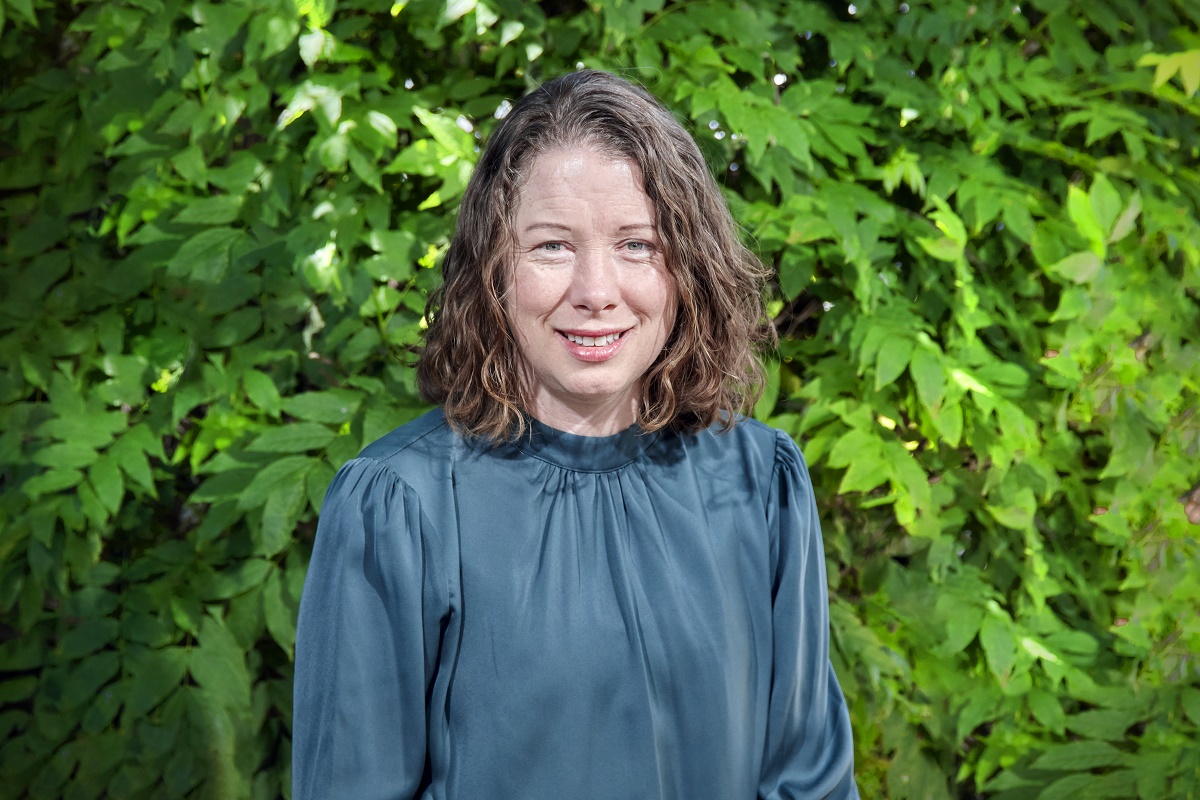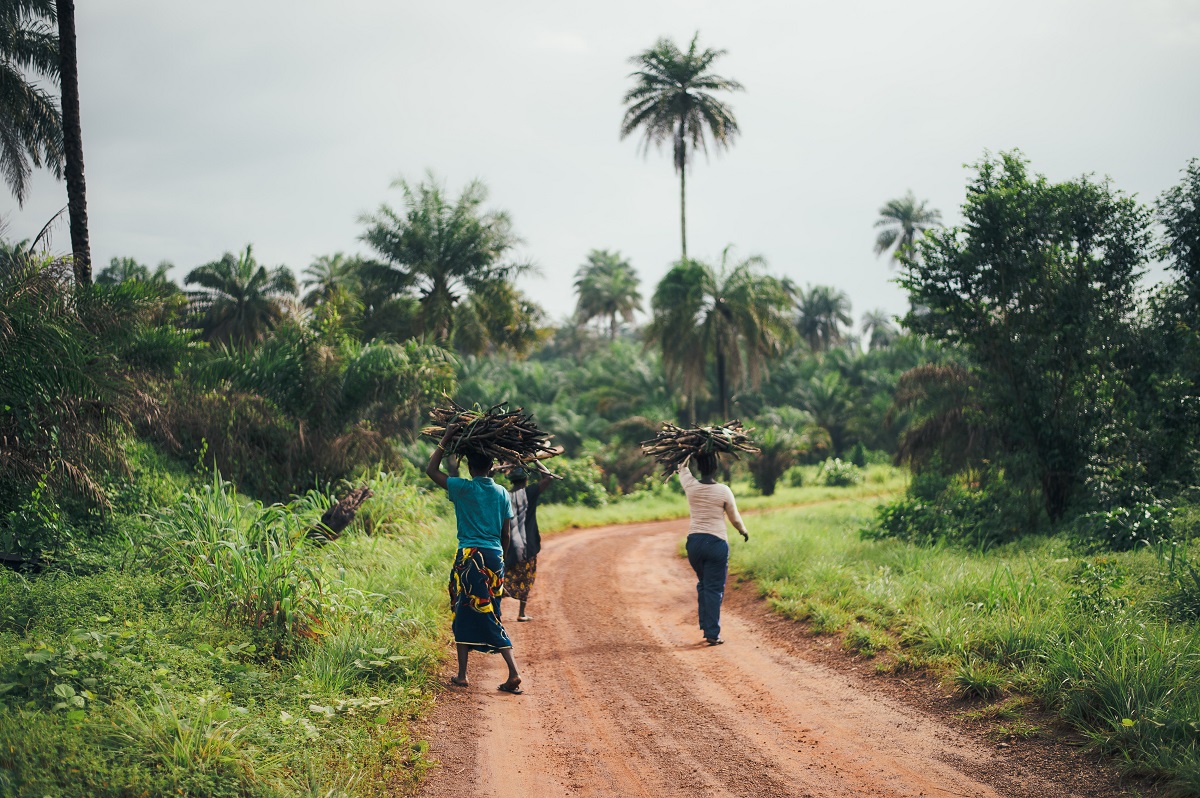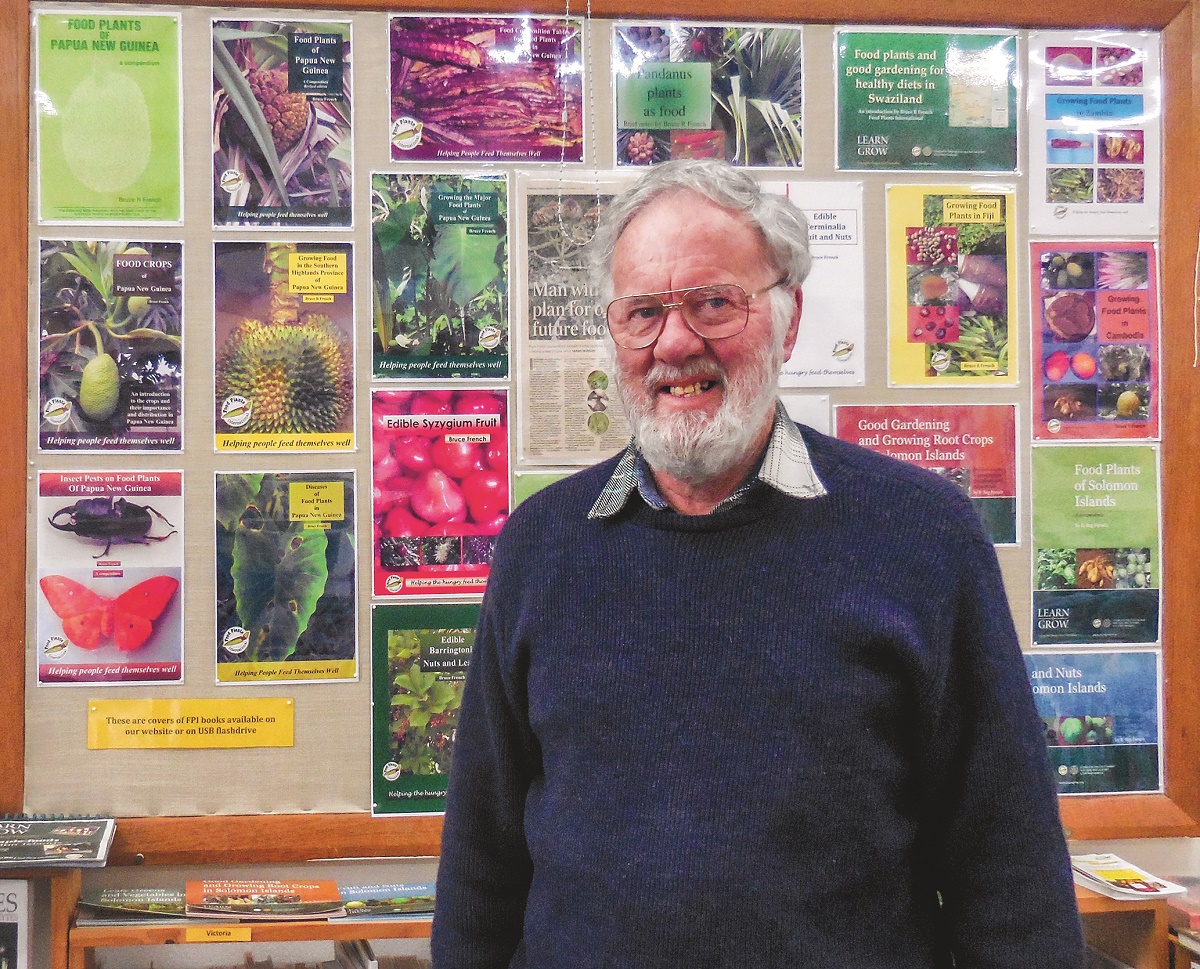By Andrew Humphries
Former Tasmanian Uniting Church Presbytery Minister Anthea Maynard’s own life-changing event has been the impetus for her involvement in a project that benefits millions of the world’s poorest people.
Five years ago, after 12 months of treatment, Anthea was given the all-clear in a battle with cancer.
The successful outcome meant that Anthea took stock of her life and reshaped some of her priorities.
The win over cancer was, she says, a calling from God to devote more energy to her work with Food Plants International, established by her father Bruce in 1999 with the aim of changing, and saving, the lives of people everywhere by setting them on the path to better nutrition.
According to FPI, about 3 billion people struggle to survive in some of the world’s poorest countries, with food security and regular supply the biggest issues they face.
Malnutrition is the leading cause of disease and death, and affects young children the most, with a child dying every five to 10 seconds.
Vitamin A deficiency means night blindness is a common condition, while many people in tropical and sub-tropical countries are deficient in iron.
“It does not have to be this way,” says the FPI website.
“God has already provided the right plants growing in their right places to sustain people in every place on his earth.”
And leading the fight to improve lives through better education around plant nutrition is Anthea.
“When I was given a good outcome after that year of cancer treatment, during which I was beautifully supported by the Synod and Presbytery, I felt a strong sense of God’s calling to the work of promoting local food plants around the world to improve the nutrition of mothers and children,” is how Anthea explains what drives her.
“I am living out this calling at the moment through voluntary work for FPI one day a week and I am also on the FPI board.
“The aim of FPI is to see hunger and malnutrition diminishing through the promotion and use of diverse local food plants, particularly in countries where the mortality rate of children under five is the highest, although it is relevant to every country.
“Equipped with this new or forgotten knowledge, people can identify, evaluate and utilise food plants adapted to their local environment, thereby improving food security, health and nutrition.”

Anthea Maynard has seen how Food Plants International can change the lives of many people.
The key to FPI’s success, says Anthea, is that it taps into knowledge that already exists around what plants can provide in a nutritional sense.
“Basically we want people to have the knowledge and skills to feed themselves, and our focus has been on rural subsistence but also urban slum areas,” she says.
“So it’s about asking the question, how can people be empowered and have the knowledge and agency to grow whatever they can in the place that they live?
“There are certain plants that grow well in each place around the world and they are the ones that you need to identify and use.
“As an example, you might have some people trying to grow maize in the desert because it is the preferred food, but if they switch over to millet or sorghum they literally can feed themselves, and I have seen a situation where people go from being unable to feed themselves to having a bumper harvest of nutritious food.”
Anthea says FPI and how it can change lives is the perfect example of God’s work being carried out in the world to benefit millions of people.
“I certainly see this as being, as we would say in the Uniting Church, God in Christ at mission in the world,” she says.
“FPI is just a tiny speck within that mission and ministry, but is has so much potential because we know, for example, that we don’t need to try and get vitamin A genetically modified in Uganda to grow bananas because there are thousands of plants that can give you vitamin A.
“I feel that God has literally provided people with nutritious plants wherever they are and wants people to know how blessed they are with that knowledge, and that their children today can potentially have the answer to something like vitamin A deficiency.
“I would be stoked to see a real transformation and see people’s eyes opened to what is right there in front of them.
“This is going back to the whole concept of Jesus feeding the hungry, and our faith means we are invited into Christ’s mission in the world, which is practical as well as hope-filled.”
It was a stint in Zimbabwe that opened Anthea’s eyes to what was possible when a community came together for a common good.

Food Plants International is creating a better quality of life for millions around the world.
“In Zimbabwe the work I was doing at the time was linked with a clinic connected to a children’s home, but after two months the clinic closed and I realised after that I had been set free,” she recalls.
“I moved into community nutrition, rather than just tropical medicine, and we had the opportunity to network with all of the different NGOs, as well as the local community, to see what the barriers were to them being able to have good food.
“Through partnering with a local indigenous NGO, we realised that it wasn’t until we had a traditional community feast together that the barriers came down.
“When that happened I saw understanding flourish and what could have become a hierarchical situation had changed, so the house mother was sitting next to the CEO and sharing stories about how much they loved this food, where in a more institutional, or Western, system they would perhaps have been more embarrassed about it.
“There was this consensus around everyone loving this food, so I couldn’t have done a training program that better created that opportunity … it really was a profound experience in formulating what was to come.
“So we set up a garden with traditional food plants and people worked together and that meant we were living and experiencing so much. The knowledge was already there, it was just a case of raising it up.”
While much of what FPI offers can be applied to countries like Australia, Anthea says there is a wider context that needs to be considered, particularly around issues like climate change and our impact on the planet.
“We know (what FPI does) changes lives, and we want people to be relieved of malnutrition, and we are starting to realise now that much of this is also relevant to Australia,” she says.
“So what we would like to see are small-scale food gardens and adequate nutrition established for communities, preferably using local food plants.
“However, about 30 per cent of our carbon footprint is associated with agricultural and food production and transport, and it’s tragic that in the Western world every mouthful of food requires such a huge amount of inputs in terms of production, machinery and transport, factories and planes.
“(The problem is that) we are greedy and we want everything today.
“It all ties in to this issue of stewardship and a sense of place and, for Aboriginal people for example, their story acknowledges the importance of place, which we are very quick to overlook and so become disconnected from our environment.
“In terms of climate change, our eyes really need to be wide open to the impact we are having on other people around the world, so it’s about honouring God and the people around us.”
FPI has a tax deductibility project that creates educational resources for and with people from a number of countries, including Papua New Guinea, Timor Leste, Vietnam, Nigeria and Zimbabwe. For more information, click here

Thousands of plants grown all over the world can be used to provide nutritional food.
Database saves lives
Head to the Food Plants International website, click on its database and a world of wonder about nutritional plants opens up at your fingertips.
Listed are thousands of examples of plants that can be grown in a local context and provide nutrition for millions of people around the world.
The database is, quite literally, a lifesaver, says Anthea Maynard.
“Through it, you can choose any country and it gives you the possibility to search nutritional plants with any variation you wish,” she says.
“So even with climate change, the database will tell you the ecological zone that a particular plant best grows in, even if that ecological zone moves across the country as climate change has an impact on particular areas.
“As an example, you can search for information on a tree in arid Africa that grows nuts and it will tell you the type of African tree that has edible nuts and where it is located and, if that arid area moves, the plant should move with it over the seasons.”
Anthea says the database is particularly useful as a resource tool in many countries.
“So if, for example, we are working with an organisation like World Vision, which has used our resources before, it’s about ensuring that whatever community development programs they are running incorporate some knowledge about nutrition and food within it,” she says.
“Or it might be a church that has a community garden and can then use the FPI database to work out what will grow best in a nutritional sense.”
The database provides a wealth of information on each plant, including its scientific name, description, production notes, nutritional value, pictures and references.
Not surprisingly, the task of documenting so much information for over 30,000 plants is a daunting one, but any person with an interest can lend a hand by contributing their own knowledge of a particular plant.
As Anthea suggests, it’s all about educating as many people as possible on the nutritional value of the plants that will grow readily in their own backyard.
“We love to see people adapt, incorporate and translate our information on posters, books and the database as needed, or collaborate with us to create new resources that can be used as part of a school curriculum or though practical workshops,” she says.
“We share our information freely with community development and health workers, church leaders, teachers, nutritionists, and agriculturalists to directly use or repurpose these materials to promote and grow their own nutritious food plants.
“Equipped with this new or forgotten knowledge, people can identify, evaluate and utilise food plants adapted to their local environment, improving food security, health and nutrition.”

Anthea Maynard’s father Bruce French established Food Plants International in 1999.
Planting seeds of knowledge
Anthea Maynard’s important work with Food Plants International continues a wonderful family tradition that began in the early 1970s with her father Bruce French.
When Bruce arrived in Papua New Guinea as a lecturer at what is now the University of Natural Resources and Development, he realised that many villagers were suffering from disease and malnutrition, despite being surrounded by nutritious edible plants.
“When some of his students returned to their studies, my dad heard their feedback around the fact that what they had learnt previously wasn’t really relevant because they had been taught about Australian agriculture,” Anthea says.
“Knowing that, dad just couldn’t bring himself to roll out the standard curriculum as it was, and he took the brave step of telling the students that it needed to be changed.
“He sent them out to some of the rural villages to listen to the elders and hear their wisdom and thoughts.
“In a two-week period he also set up a garden, and that meant he spent the whole year learning with his students about PNG’s nutritious plants.
“Originally it was very much an agricultural course but, at the same time, he was sent to a health centre in the highlands where a number of babies were malnourished and that was when he realised the connection between agriculture and nutrition.”
That connection would result in books, other resources and, in 1999, the establishment of FPI.
“My father finished writing some of the first books about the pests, diseases and basic agriculture of PNG,” Anthea says.
“He realised there was lack of understanding around what were nutritious and edible plants in PNG and nothing in the way of books or resources that could feed into education broadly, so he went on to document all of the food plants of PNG.
“Of course, before computers this was very labour-intensive.
“All of this was basically the stepping stone to what is now Food Plants International.”
Not surprisingly, her father, and his work, have been a source of great inspiration for Anthea.
“Watching my dad’s work certainly lit something within me,” she says.
“I am very broadly interested in wellbeing, not just nutrition but also spiritual health, ecological health and medicine, and I have a Masters in Public Health and Tropical Medicine.
“I see FPI and its database as a central element for me to add to my collection of interests.
“So, nutrition is a foundational requirement in terms of resilience to diseases, particularly the tropical ones.
“That is what I am particularly interested in, looking at the big systems that help people have access to good food and the social and cultural barriers to being unable to access that good food.”
Bruce French’s outstanding work and long-standing commitment to improving the lives of the world’s poorest people through better information around nutritional plants was recognised last year when he was named Tasmania’s Senior Australian of the Year.
In accepting the award, Bruce paid tribute to some of the people who had inspired him during his work.
“The ones that inspire me most are the women … I spent hours and hours in markets talking to the ladies, asking what is it, how do you grow it, will it kill me?” Dr French told the Hobart Mercury.
“They’re the ones who inspire me most. There’s lots of fancy, famous scientists I’ve met around the world but it’s the people in the villages who inspire me most.”


